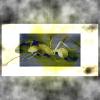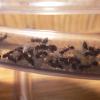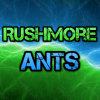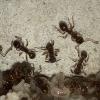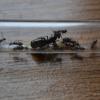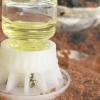Yeah I just recently clued into the two different Ants Dakota ... I guess I'm in the derpy category myself 
I thought my first Veromessor pergandei colony was derpy but the second one is definitely much more Derpymessor perganderpy. First colony is actually doing well now, pulling in seeds, sorting them in the test tube into different piles, piling up all the outside seeds and trash into a huge pile, and not dying in their ant nectar. Second colony ... I'm a bit worried about. First colony also demonstrated a tiny bit of "medical care" behavior (see article about medical triage in termite raiding ants), but second colony shows no concern for fellow workers in trouble.
I thought my Camponotus fragilis were pretty interesting. At least they are curious and fast to move out of one place and into another. However, ever since the heat's been turned off they've been eating brood and the foragers REFUSE to bring home the bacon. If I put food into the nest directly they'll eat it, but the foragers won't bring home anything.
My C. sansabeanus seem to be occasionally sans sense. Like in terms of accepting food. Super picky.
Tetramorium seem actually sort of clever, if boring. They love to collect sand, even off mini-hearth surfaces, and block light with it. At least in my first colony, workers are very very quick to pick up stray brood and try to rescue them. When I've dumped some out into a new place, after some panicking they rapidly gather together in a corner with all their brood. I even watched one clever worker go on a personal mission to bring in all the brood in the outworld down to the nest - she was very dedicated and kept at it.
EDIT: Again, I know these are just personal judgments and ascribing "intelligence" or "derpiness" is highly subjective.
Edited by OhNoNotAgain, February 25 2020 - 3:52 PM.
Past & Present
Veromessor pergandei, andrei, stoddardi; Novomessor cockerelli
Camponotus fragilis, Camponotus sansabeanus (inactive), vicinus, laevigatus/quercicola, CA02
Pogonomyrmex subnitidus, P. californicus (inactive)
Liometopum occidentale (inactive); Prenolepis imparis; Myrmecocystus mexicanus (inactive); Tetramorium sp. (inactive); Lasius sp.
Termites: Zootermopsis angusticollis, and a box of drywood termites that can't be seen
Isopods: (most no longer keeping) A. gestroi, granulatum, kluugi, maculatum, vulgare; C. murina; P. hoffmannseggi, P. haasi, P. ornatus; V. parvus, P. pruinosus, T. tomentosa
Spoods: (no longer keeping) Phidippus sp., other

